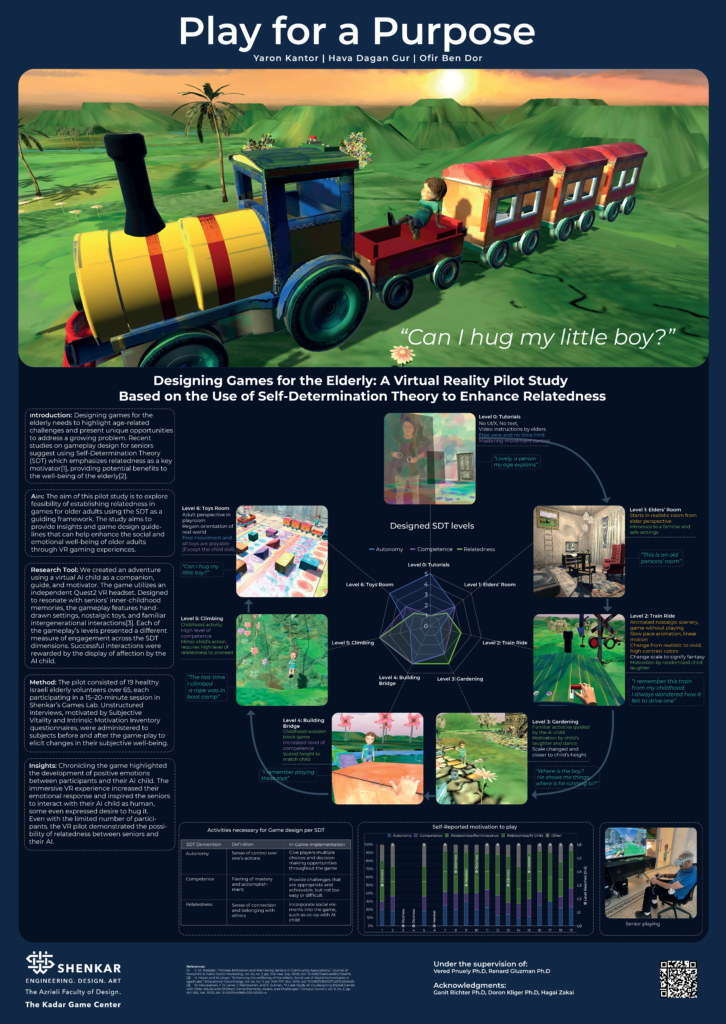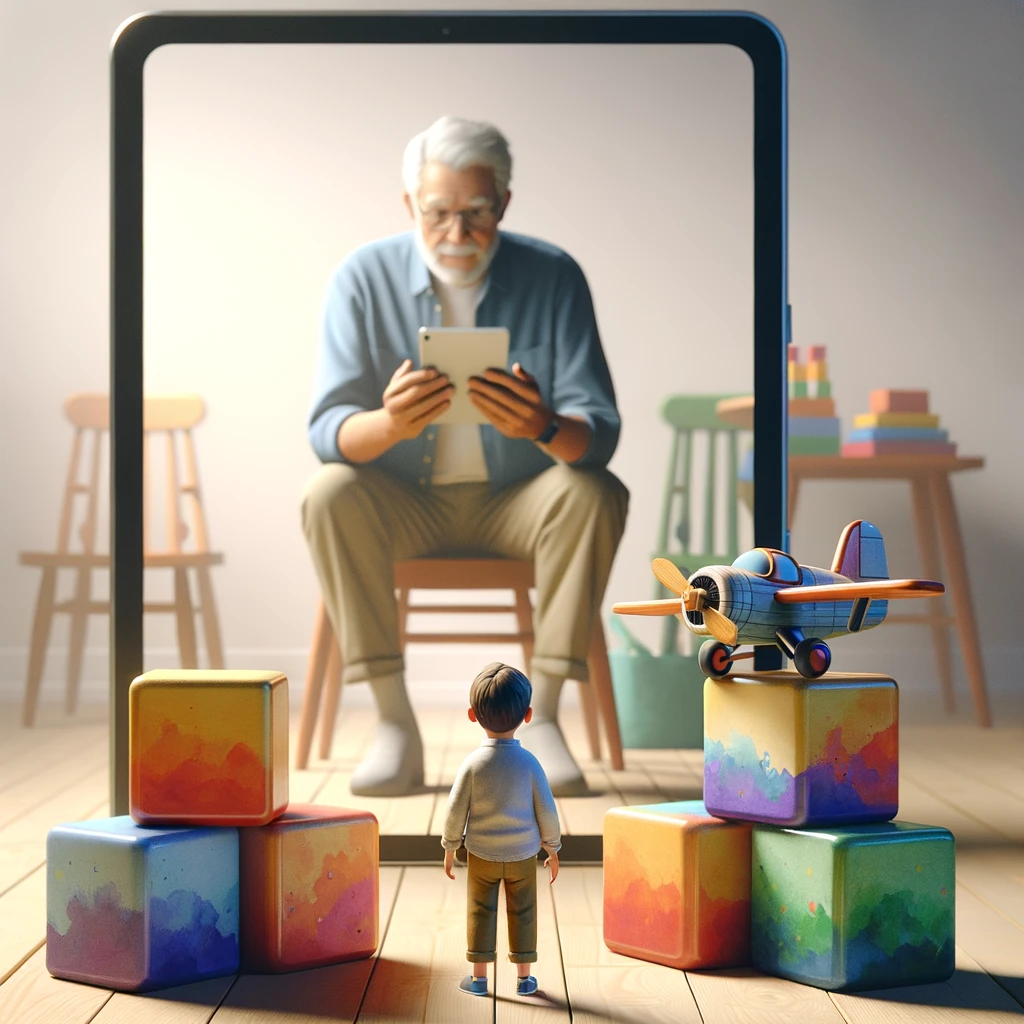Our pilot study explores the potential of a virtual reality (VR) game centered around relatedness as a key motivation to enhance well-being in older adults. The game, designed based on self-determination theory and tailored for accessibility for elders, features an AI companion and incorporates childhood activities to establish a sense of connection and familiarity. The participants engage in these activities alongside an AI child character, fostering a unique bond. With 19 participants aged 65 and above, our findings indicate a meaningful relationship with the AI child and a positive impact on well-being. While further research is necessary, our study suggests that games that prioritize relatedness, accessibility, and utilize familiar elements could be a promising approach for promoting well-being and social connectedness in the elderly population.

Introduction: Designing engaging games for the well-being of the elderly requires addressing age-related challenges, specifically loneliness and purposelessness. Recent studies on gameplay design for seniors suggest using Self-Determination Theory (SDT) which emphasizes relatedness as a key motivator[1], to provide potential benefits to the well-being of the elderly[2].
Goal: The goal of this pilot study is to explore feasibility of establishing relatedness in games for older adults using the SDT as a guiding framework. The study aims to provide insights and game design guidelines that can help enhance the social and emotional well-being of older adults through VR gaming experiences.
Research Tool: A virtual AI child is being used as a companion, guide, and motivator in an adventure VR game. The game is utilizing an independent Quest2 headset. It is designed to resonate with seniors’ inner-childhood memories, with hand-drawn settings, nostalgic toys, and familiar intergenerational interactions[3]. Each level of gameplay presents a different measure of engagement across the SDT dimensions. Successful interactions are rewarded by the display of affection by the AI child.
Method: The pilot consisted of 19 healthy Israeli elderly volunteers over 65, each participating in a 15–20-minute session in Shenkar’s Games Lab. Unstructured interviews, motivated by Subjective Vitality and Intrinsic Motivation Inventory questionnaires, were administered to subjects before and after the game-play to elicit changes in their subjective well-being.
Insights: Chronicling the game highlighted the development of positive emotions between participants and their AI child. The immersive VR experience increased their emotional response and inspired the seniors to interact with their AI child as human, some even expressed desire to hug it. Even with the limited number of participants, the VR pilot demonstrated the possibility of relatedness between seniors and their AI.
Conclusion: Incorporating relatedness as a key motivator, along with tailored design for accessibility, engagement, and reminiscence, can promote the well-being of older adults in digital games. Our study showcased the effectiveness of integrating the design elements along with an AI Child companion to stimulate feelings of relatedness. These findings suggest that such approaches hold promise as tools to enhance the quality of life and emotional health of older adults.
References:
[1] C. M. Webster, “Intrinsic Motivation and Well‐being: Seniors in Community Associations,” Journal of Nonprofit & Public Sector Marketing, vol. 20, no. 2, pp. 229–244, Sep. 2008, doi: 10.1080/10495140802224878.
[2] H. Hasan and H. Linger, “Enhancing the wellbeing of the elderly: Social use of digital technologies in aged care,” Educational Gerontology, vol. 42, no. 11, pp. 749–757, Nov. 2016, doi: 10.1080/03601277.2016.1205425.
[3] M. Havukainen, T. H. Laine, T. Martikainen, and E. Sutinen, “A Case Study on Co-designing Digital Games with Older Adults and Children: Game Elements, Assets, and Challenges,” Comput Game J, vol. 9, no. 2, pp. 163–188, Jun. 2020, doi: 10.1007/s40869-020-00100-w.
https://youtu.be/W4BJJj8NNyg

